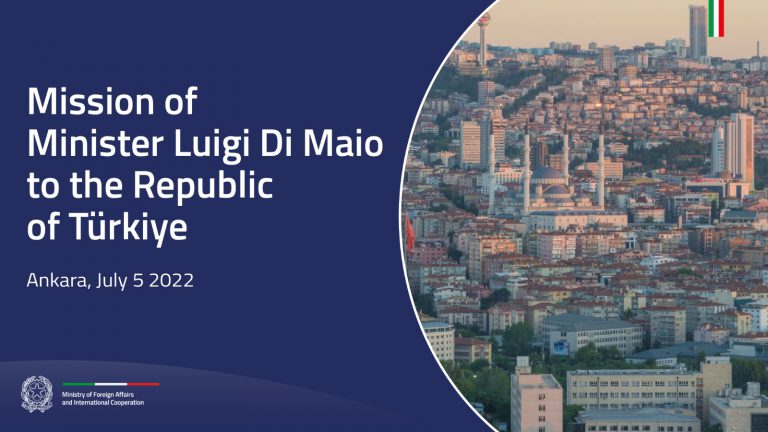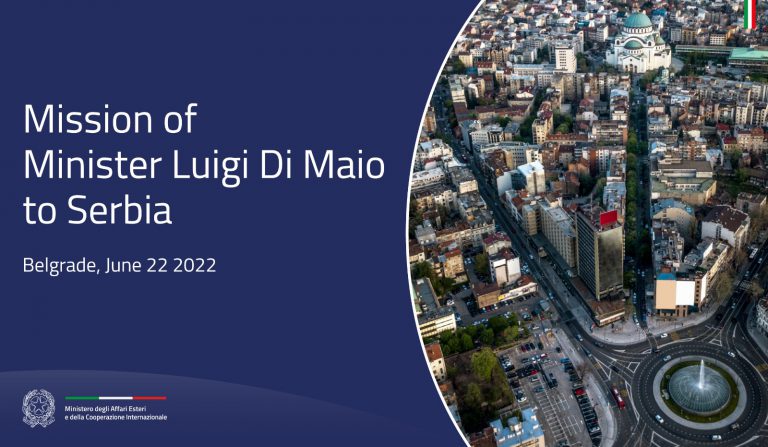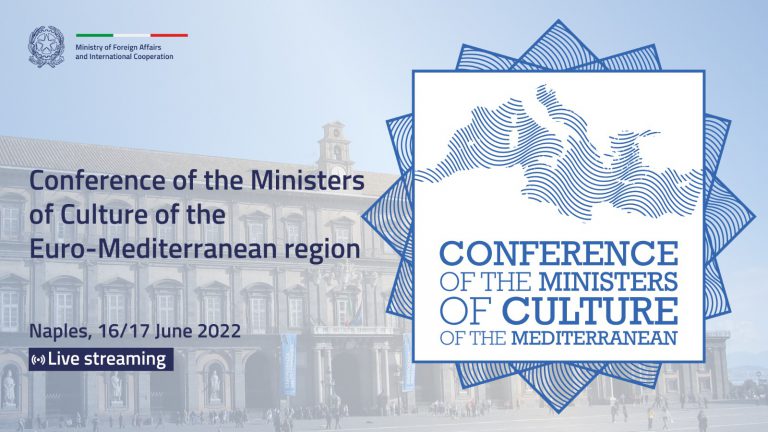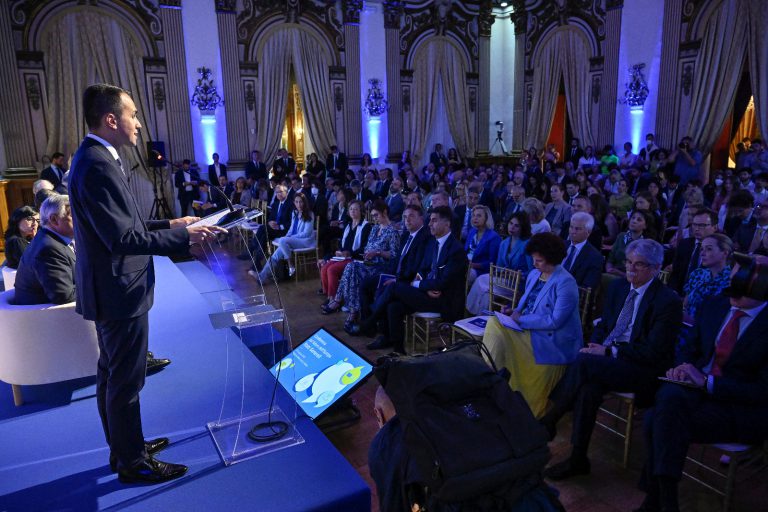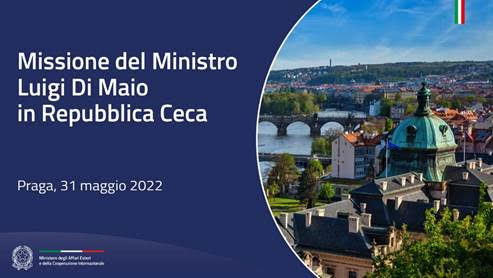MUNICH SECURITY CONFERENCE
SPEECH BY THE HON. MINISTER LUIGI DI MAIO AT THE PANEL
“EUROVISION CONTEST: A EUROPE THAT PROJECTS”
(Munich, 16 February 2020)
Dear Colleagues and Friends,
I am very happy and honoured to open the discussion today, on this prestigious occasion and before this attentive and expert public on international security issues.
I understand that the organisers have developed the theme of Europe today from two perspectives:
– protection, meaning the desire to preserve of way of life and our system of values from the threats posed by a increasingly complex world;
– and projection, to which this panel is dedicated, meaning the effort to model our external environment, in order to make it easier to control and – ultimately – to continue to enjoy the opportunities while minimising the risks
Protection and projection, combined, are the result of a strategy of preservation – and possibly also of growth – with different, yet complementary, means
The Introductory Report to this year’s Security Conference in Munich highlights the new emphasis as a talking point, in recent years, on the role of Europe in the global arena, also as a result of the start of the EU’s new institutional cycle.
President Von der Leyen has launched the definition of “Geopolitical Commission”, which points to a new awareness, in today’s world, that a purely defensive strategy is no longer enough. Without giving up on our fundamental values – democracy, the rule of law, our fundamental freedoms, trust in a system of international relations based on multilateral institutions and shared rules – we need to build up a set of tools enabling us to more strategically and effectively interact with the external context, by exploiting the levers we have to the best of our opportunities, meaning both the Union and the individual Member States. Moreover, this necessity had already been identified several years ago and had been placed at the core of the Union’s Global Strategy in 2016, which our moderator today, Nathalie Tocci, helped to draft.
Therefore, we are progressing on a process of change of the mechanisms and the attempt to overcome the institutional and political factors that are hindering the effectiveness of our actions.
Our objective is to build a stronger and more determined Europe in influencing external events, without however neglecting our inspiring values, which are part of the genetic code of Europe and which encourage it to seek collaborative and inclusive methods in its approach to the international arena. This also serves as a compass for tackling global geopolitical competition, especially among the United States and China. Here, the EU’s potential should be employed to further strategic objectives, the most important of which is the search for stability and security – a need that is strongly felt by our citizens – through the multilateral formats of which we are members. Extending as far as possible the spaces for collaboration is undoubtedly the best way for containing the level of confrontation between the large global powers within acceptable levels.
We cannot forget that a key component of the genetic code of the European Union is our relationship with the United States. We cannot question its fundamental validity, nor can we question our role within the framework of NATO and of transatlantic relations in general.
Clearly, we need to build a stronger Europe, which can be achieved through a three-pronged approach:
- building our capacity to act strategically;
- enhancing our will to do so, by thinking of Europe as a key international player and speaking with a single voice;
- increasing the effectiveness of the Institutions of the European Union.
These three factors must be seen in relation to the external scenario, featuring both global competition and the very difficult regional crises that surround us.
The complexity of the present institutional organisation of the European Union is often an enemy of our strategic effectiveness, also in terms of communication – which is always a significant part of any strategy. The good news is that the Union, as a whole, has many important tools to achieve this, much greater than the sum of the tools available to its single Member States. Suffice it to mention our trade policies: there is no comparison between how we can defend our interests together and how we could do so as individual countries. Or even, on a different issue, the potential for positive change represented by the EU’s enlargement policies. This prompts us to send concrete signals to the countries of the Balkan Region looking to access the Union, first and foremost by starting negotiations, in the forthcoming months, with Albania and North Macedonia.
The broadening of the spaces for freedom and democracy on the European continent are a conquest that we need to preserve, also with a view to rebuilding cooperative relations, founded on dialogue and mutual listening, nin the Euro-Atlantic area. We may – and indeed do – have diverging opinions as to how to interact with Russia, but we can’t deny the fact that Moscow is a key player for international security.
The complexity of the EU is also exacerbating the challenges posed by relations with the external context, in terms of the handling of international crises, which, by their very nature, require the capacity for swift action – both diplomatic and military – and unity of intents.
I will surprise no-one by introducing the issue of an extended Mediterranean: we are aware that it is a fragmented reality in which, besides the deterioration of the Libyan crisis, the endemic instability in Syria and the great risk of an escalation in the Gulf region, we are also assisting in the proliferation of non-state players (militia groups terrorist organisations, criminal organisations trafficking in drugs, arms and human beings) , which have gradually developed the capacity to take root and expand their sphere of action.
The lasting and sustainable stabilisation of Libya is one of the cornerstones for ensuring the stability, security and prosperity of the entire extended Mediterranean region, as well as Sub-Saharan Africa. This priority goal is a mainstay of Italy’s foreign policy and national security policy. It is our duty to pursue the stabilisation of Libya in the interest of the Libyan people, first and foremost, because it deserves a future of peace, prosperity and well-being after nine years of crisis. For Italy, this objective must also incorporate the key principles of unity, territorial integrity and sovereignty of Libya and the refusal of any military action. The Berlin Conference has represented a very important step forward in a process that we know very well is still long and fraught with all types of pitfalls, and the fulfilment of which, besides the key role that must be played by the Libyans themselves, will require the cohesive and choral commitment of the International Community as a whole. A cohesion of intents and principles that was no foregone conclusion, and which was mirrored first in the Conclusions of Berlin – of which we share each single point – and then in the resolution adopted last Wednesday by the Security Council of the United Nations. It has now become necessary to bridge the persistent gap between diplomatic rhetoric and behaviour and facts on the ground: the ongoing breaches of the ceasefire and international embargo in Libya today, in fact, paint a different picture to the one outlined in Berlin and forebode a possible large-scale conflict, which we must prevent at any cost.
It is necessary for Europe to appear present and united in order to regain the political clout it is entitled to: it must deploy its capabilities and resources, also in terms of security, in support of the political process for the stabilisation of Libya. Italy is also committed to ensuring the achievement of the Resolution of the Security Council, for an EU mission that can effectively implement the arms embargo. Italy also hopes in a clear commitment by Europe in monitoring the ceasefire, as soon as it is formalised. I hope that, especially with regard to the issue of the embargo, tomorrow’s Foreign Affairs Council meeting may represent a significant step forward.
Then there’s also the terrorist threat posed by Daesh, not just in Syria and Iraq, but across the world, through a network of affiliated organisations. To effectively combat this threat we too need to broaden our sphere of action (contrast and prevention) to the Sahel: this region, in fact, is a crossroads of people trafficking and we are seeing a strengthening of the local terrorist groups and a consequent surge in the number of attacks. To this end, we have decided to dedicate an ad hoc session, at the Expanded Ministerial Meeting of the Anti-Daesh Coalition, which we are hosting in Naples on 31 March, to the Sahel, alongside the core countries in which the Coalition operates (Syria and Iraq).
The Sahel, as well as the Horn of Africa, is another vital area for external action by the Union, in which we can make a difference; provided we are able to combine the coherence of action and availability of tools – in other terms, will power, capacity and efficiency by the European institutions – that I touched on in the beginning of my speech.
In conclusion, I wish to emphasise that the European Union can play a global role in containing the possibly detrimental effects of geopolitical competition, but the credibility of Europe’s external actions and, ultimately, its legitimacy depends, also in the eyes of the European citizens, upon how it is able to manage the crises, such as the ones under way in Libya, Syria and Yemen, and prevent other potential situations of instability in the neighbouring regions.
We have no option but to rise to this challenge.



